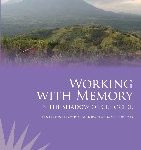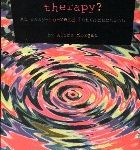Attachment theory is very popular in therapy these days. But what do you as a therapist do with all that theory? How can you use it to make the lives of your clients better?
This book is a hands-on, practical guide to successful attachment-oriented interventions with parents and children who present with a variety of issues, from trauma to depression to anger.
It begins with an understanding of attachment’s role in stress regulation and relationships. With the basics examined, the book takes a deep dive into the practicalities of clinical work. The book lays out a detailed behavioural checklist for each attachment pattern (secure, avoidant, ambivalent, disorganized). This checklist provides a rich source of interventions for therapists. The author includes sensory-based interventions and how to use body-based methods. Play that strengthens attachments is also discussed.
Individual chapters present interventions for:
- Children who have attachment issues due to complex trauma, grief, or adoption or custody decisions. The book includes innovate suggestions that range from creating visual treatment plans for children to the scripts or activities within sessions.
- Parents with attachment problems, including logistics of when to add children and other family members, and what to do in sessions.
- Highly stressed people. The book provides a practical format for communicating with stressed adults and children, especially those with executive dysfunction.
- Teens with attachment issues, addressing both connection and independence.
- People of faith whose attachment figure is God.
Overall, the book describes common factors in successful attachment interventions. Written by a leading attachment therapist, this book applies decades of experience with clients empathic yet playful tone. It provides therapists with a range of therapy activities to make use of one of the most important mental health theories of the past quarter century. Chock-full of techniques and scripts for clinicians, the approaches here are practical, positive, and easy-to-implement.
Contents:
- Introduction
- Part I: The Development of Attachments and Attachment Patterns: Their Roles in Close Connections, Stress Systems, Sense of Self, and Theory of Mind
- 1. Parenting and the Formation of Attachment Patterns
- 2. Changing Attachment Patterns
- Part II: Therapy Processes, Methods, and Techniques in Treating Attachment Issues
- 3. Attachment-Promoting Methods, Plans, and Techniques
- 4. Treatment for Children Who Have Attachment Issues
- 5. Treatment for Parents Who Have Attachment Issues
- 6. Treatment for Adolescents Who Have Attachment Issues
- 7. Modifications When Working on Attachment with Highly Stressed Families
- 8. Spirituality, Faith, and Attachment in Clinical Work
- 9. Play and Attachment
Author Bio:
Deborah D. Gray has an attachment-focused practice and has worked in child welfare for thirty years. She lives in Kenmore, Washington.
Review:
“With her 30 years of experience, Deborah Gray draws us into a deeper understanding and appreciation of attachment theory. Deborah writes as she speaks, offering real-world, practical insights that not only enlivens therapists’ comprehension of this field but invite them to apply these ideas in way that are inclusive and relevant. Applying these principles will enhance your practice” – Mary M. McGowan, Executive Director of the Association for Training on Trauma and Attachment in Children (ATTACh)
“This book is an act of generosity, a compendium of Deborah Gray’s attachment-based therapy that includes theoretical underpinnings, structure, goals and objectives, methods and opportunities for improvisation. It contains a wealth of practical examples, concrete advice, and tips. Gray’s emphasis is on direct experiential work that employs touch, physical movement, play and role-play, scripted dialogue, food sharing, and development of narratives to increase parental sensitivity and emotional availability to children. Gray’s advice is invaluable for therapists who are helping children with troubled histories trust caregivers enough to co-regulate strong emotions and learn ways to calming down when upset rather than melting down” – Dee Wilson, author of Sounding Board commentaries on child welfare.






